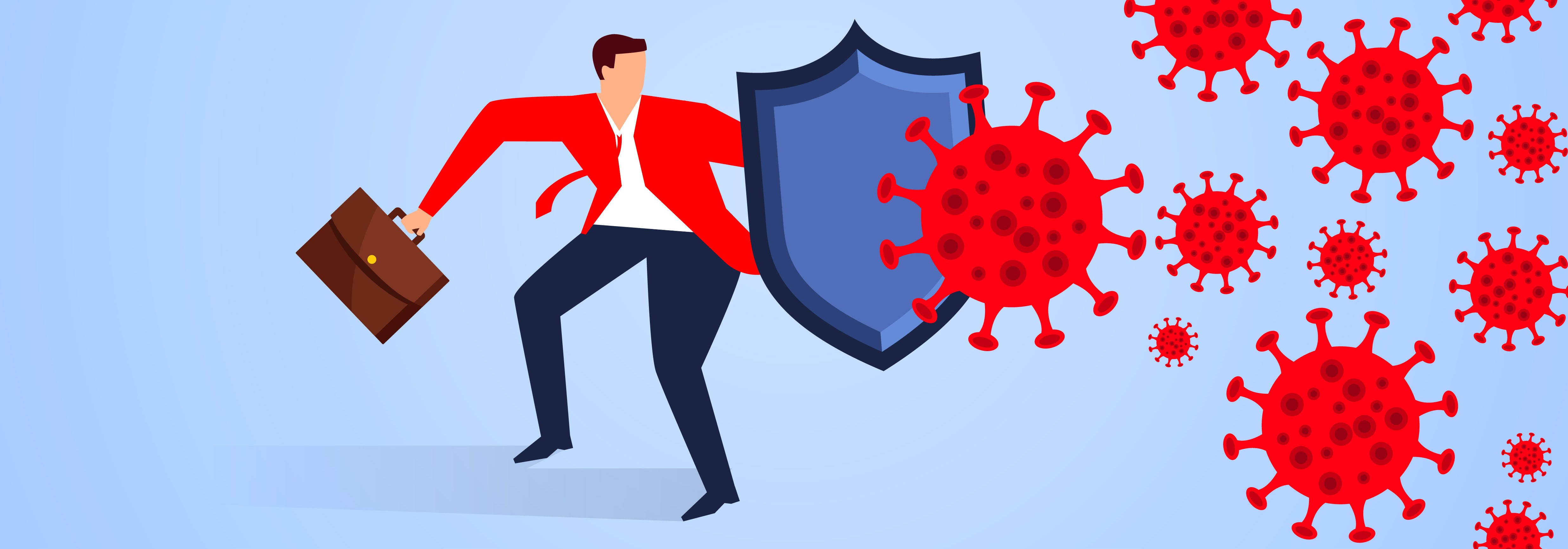by Buck Institute
April 30, 2020 . BLOG
Boosting Immunity: A good practice anytime
 By Eric Verdin, President and CEO of the Buck Institute
By Eric Verdin, President and CEO of the Buck Institute
There has rightly been a lot of discussion about the disproportionate effect COVID-19 is having on older adults. As the data continues to roll in, it is becoming apparent that there are other groups who have also been disproportionately affected— specifically those with underlying immune issues and those with pre-existing conditions, especially metabolic disorders like Type 2 diabetes. In fact, I’d argue that the reason that older adults are more susceptible to severe cases of COVID-19 is because aging predisposes people to immune and metabolic dysfunction, as well as other conditions like heart and lung diseases. And of course, all these factors are linked. An article in the NY Times discusses the ravages of the metabolic syndrome on the immune system and how this might be impacting hospitalizations from COVID-19.
A keystone principle of the Buck is that biological age and chronological age are frequently not the same. Data from laboratory interventions and studies of lifestyle factors make it clear that one can have a much “younger“ biological age than the date on their birth certificate suggests. What does this mean for COVID-19 risk? It means that there are some lifestyle choices that can make a difference, particularly in how we impact our metabolic and immune health, and potentially make us more resistant to diseases like COVID-19.
In the rest of this post I’d like to discuss some tried and true (as in, clinically validated) ways to boost your own immune system. The trifecta of improved immunity is nutrition (particularly fruits and vegetables), exercise, and sleep. All three of these, not coincidentally, can also have positive effects on your metabolic health, as well as your body weight (another linked factor that is playing a very important role in COVID-19 hospitalizations).
- Nutrition: Fruits and vegetables have thousands of active compounds that help support immune strength. Diets high in fruits and vegetables, and low in simple carbohydrates, can also help retain insulin sensitivity and promote metabolic health. In particular:
- leafy greens contain iron, folate, and Vitamin C
- carrots and sweet potatoes are high in Vitamin A
- bell peppers and citrus are very high in Vitamin C
- nuts, lentils, and seeds (as well as meat and oysters) are a good source of zinc, which helps support immune function
- Exercise: One small study found that older adults who exercised vigorously had immune systems similar to those of much younger adults.
- Sleep: This might be hard for many of us right now. Stress and disrupted routines can make it hard to relax at night, but it’s worth trying some advice from the Mayo Clinic to get better sleep. New data is finding that irregular sleep patterns are associated with increased risk of metabolic disorders and obesity (at least in worms). And remember, a well-rested body supports a well-rested immune system.
Of note, many supplements and specific compounds may boost immune cell function in the laboratory. However, there is very little clinical data to support that these supplements provide a measurable immune boost after ingestion in humans. One of the most well-known is curcumin, the active ingredient in the common spice turmeric, and shown in the lab to reduce inflammation. As I discussed in a previous blog, many supplements (including curcumin) are not bioactive and don’t get absorbed well by the body. By all means, make a delicious curry with plenty of turmeric (and black pepper, which seems to help with absorption), but don’t count on a pill to solve the problem quite yet. This is especially important right now, as we are all so eager to protect ourselves from COVID-19. The New York Times has a nice summary of how reliance on supplements is not a protective strategy.
None of the above is a magic bullet—you can’t go out for one brisk walk and come back totally resistant to all infectious disease. Instead, these are habits you can build into your routine that can help you stay healthier over time. This is clearly a time of disruption for all of us, but I encourage you to take this time to add a few tools to your “immunity toolkit” so that you’ll have a head start when things return to normal. It will also give you something to talk about when you’re able to socialize again!

SHARE